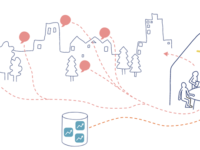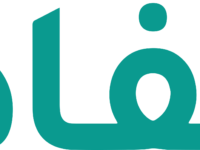This is a large-scale national initiative employing artificial intelligence techniques to proactively predict which patients are most likely to miss their appointments in outpatient clinics.
It uses machine learning techniques to process, analyse, and train data in the electronic medical record (EMR) system, encompassing patient, clinic, and appointment history.
The no-show rate at KAMC has decreased by 10%.
Innovation Tag: Artificial Intelligence (AI)
The Nafath app introduces a pioneering approach to authentication in Saudi Arabia. By leveraging biometrics and utilizing the mobile camera, it offers a secure and user-friendly app for authenticating user identity digitally. This innovative solution not only enhances identity authentication but also benefits all citizens and residents by simplifying digital interactions and empowering them to navigate the digital landscape with confidence, all through the convenience of their mobile devices.
The AI Competence Center of the Munich City Government is an innovative approach to creating a city-wide AI infrastructure. By providing expertise and support for the implementation of AI solutions, the center aims to increase the efficiency of city services and improve the lives of citizens. The center is unique in its role as a government-run AI center, which sets it apart from other AI initiatives.
Case Study
Itla View – Crowdsourcing and AI-based digital tool for knowledge management and systems…

Itla View is a digital tool to help local services for families with children to manage their activities better using up-to-date data, to anticipate the need for corrective services and identify opportunities for preventive work. It enables different actors to form a shared holistic picture of the well-being of children, young people and families in their area. Itla View collects observations sent by field actors on the daily lives of children and families. It utilizes artificial intelligence to…
Tawakkalna Services is a digital super-app which was created to simplify and enhance daily life of individuals in Saudi Arabia. It modernizes service delivery and benefits over 31 million users by providing a unified access point for diverse services, from healthcare to civil affairs. Its innovation lies in creating a unified digital ecosystem of public and private offerings, reflecting a bold step in digital integration aligned with Saudi Vision 2030.
Tampere Pulse is a revolutionary service that utilizes a predictive analytics algorithm to predict visitor flows in the city center of Tampere, Finland. It helps businesses make informed decision that will help them thrive, be it responding to growing demand, developing new business ideas, or adjusting required workforce and opening hours. Tampere Pulse is available to everyone through an intuitive and easy-to-use interface, on both mobile and desktop devices.
The Hub for Advisory, Finance and Investment for Enterprises (HAFIZ - Arabic word حافز for incentive) is an AI-powered integrated portal by Egypt’s Ministry of International Cooperation and works as a one-stop hub to avail to the private sector: (1) financial instruments (e.g. equity, debt, trade finance, insurance, guarantees, grants, etc.); (2) technical assistance services; and (3) knowledge products by international development partners.
UAsk, born from the need for seamless access to government services in the UAE, is an AI-powered chatbot transforming citizen engagement. Serving residents, businesses, and visitors, it leverages generative AI, particularly ChatGPT, for real-time, multilingual, and reliable information. Its innovation lies in delivering an inclusive, user-centric, and efficient digital experience, revolutionizing interactions with diverse government services within the digital governance realm.
BRISE-Vienna pioneers a digital revolution in building permit procedures, addressing inefficiencies with a groundbreaking approach. The integration of AI, AR and 3D modeling accelerates the process, enhancing project quality. This innovative solution benefits administrative staff, project participants and citizens, ensuring a partially automated review, seamless networking, digital access, heightened transparency and 50% time savings.
Case Study
Osaamistarvekompassi: Tackling Skills Mismatch through AI-assisted Skills Needs Anticipation

The Service Centre for Continuous Learning and Employment (SECLE) was established to anticipate the skills needed in working life and to fund competence services to proactively improve the matching of skills and jobs. SECLE’s new online service, Osaamistarvekompassi (Skills Needs Compass), provides anticipatory data on job transitions, along with insights on near-future skills needs derived from AI-assisted data mining, in a user-oriented way. The service guides the allocation of SECLE’s…


